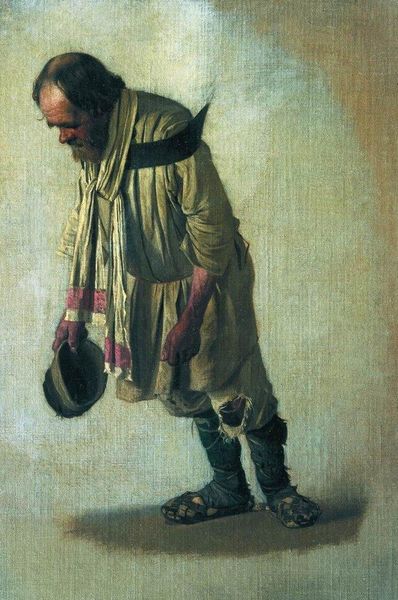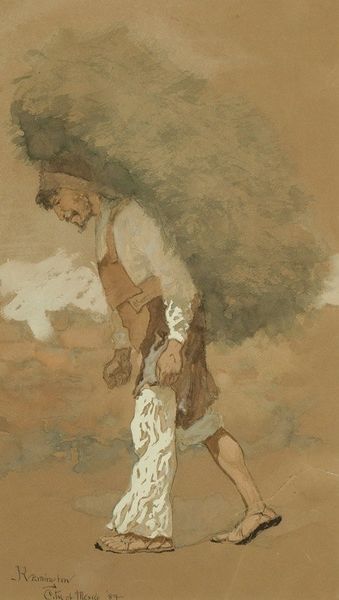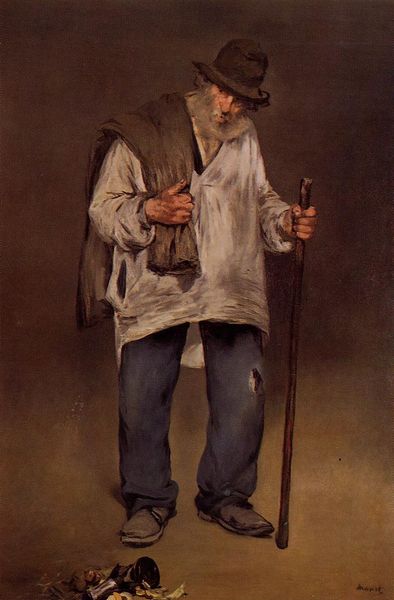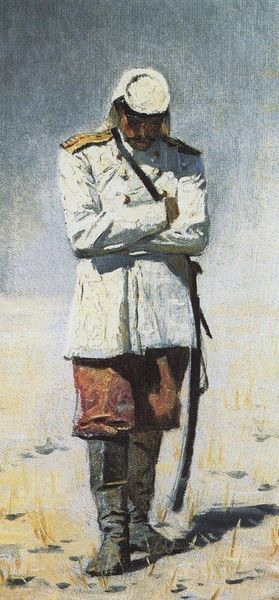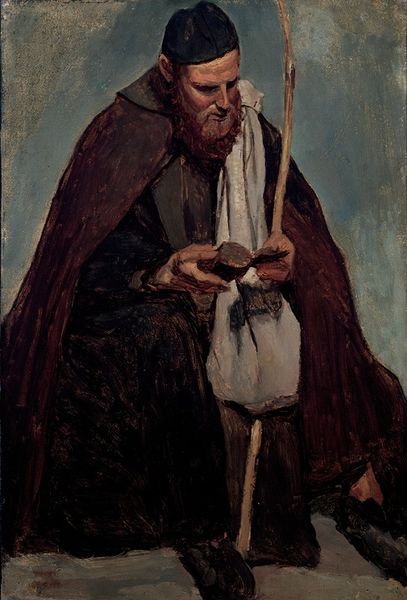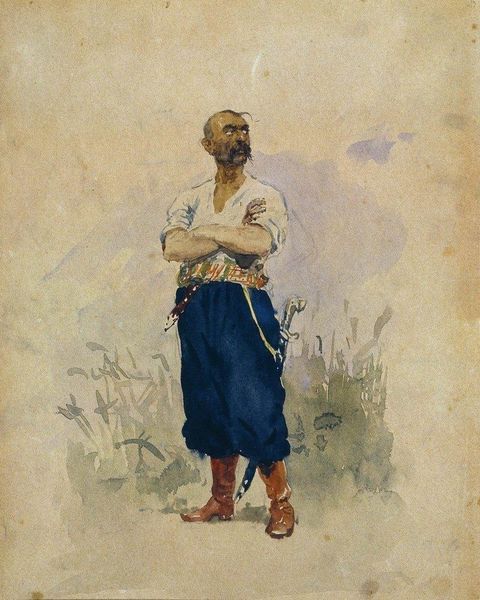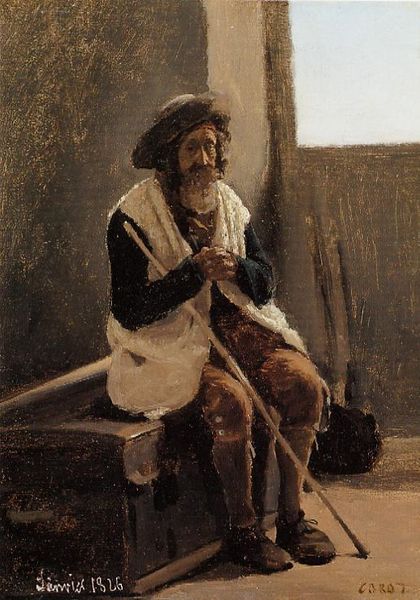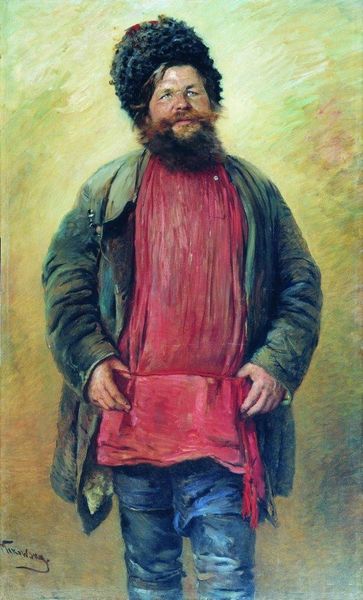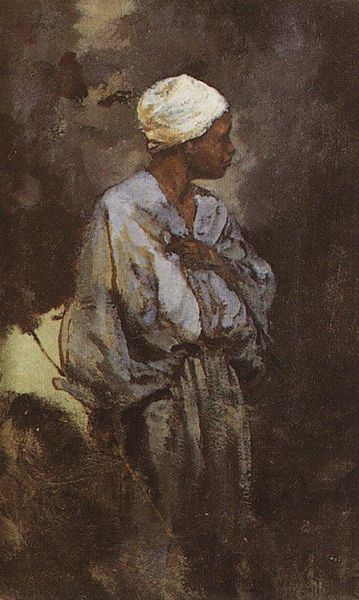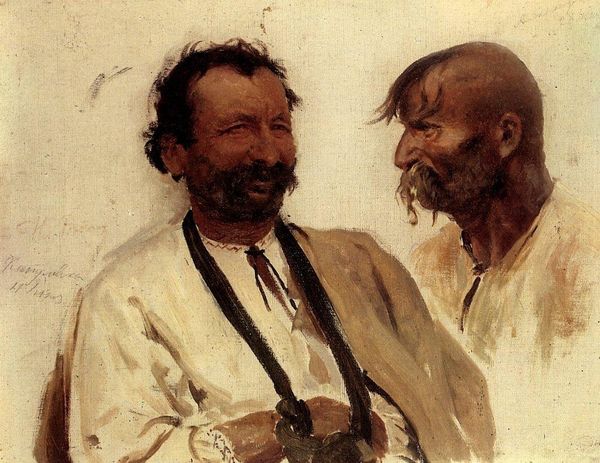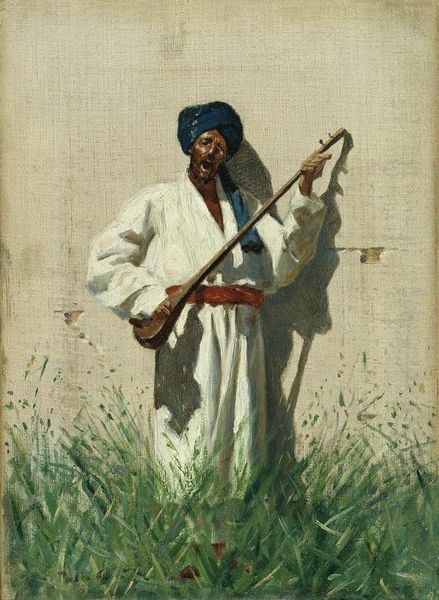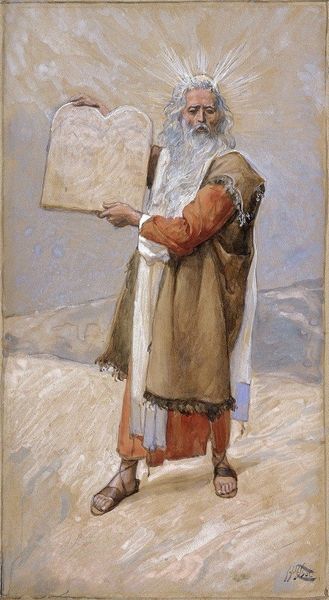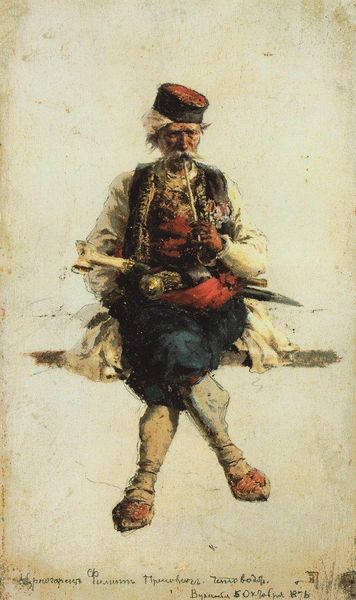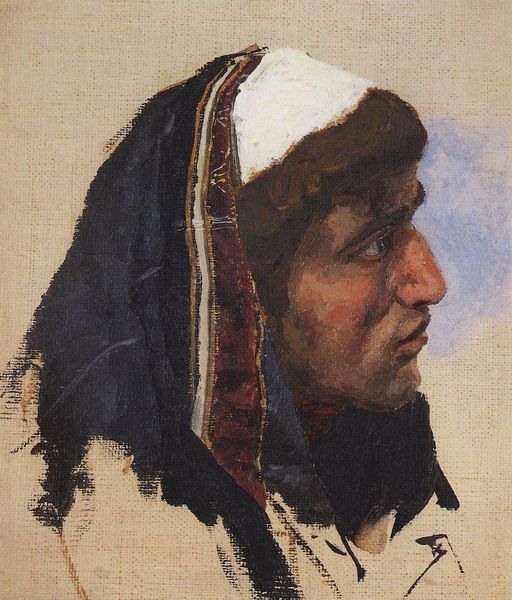
oil-paint
#
portrait
#
oil-paint
#
oil painting
#
genre-painting
#
realism
Copyright: Public domain
Curator: Vasily Vereshchagin painted "Burlak who hold hands on the strap" in 1866 using oil paint. Editor: The mood here is overwhelmingly somber, isn't it? His shoulders are hunched, the palette is muted...you can almost feel the weight he carries. Curator: Indeed. The materiality itself adds to that sense. Look closely at the thick, visible brushstrokes – almost coarse, mirroring the rough existence of a burlak, a river hauler. Editor: Absolutely, and that choice connects deeply with social realities. These men were essentially human draft animals. Vereshchagin's realism presents an unvarnished, politically charged image. Think about the public exhibitions; displaying this level of poverty must have provoked strong reactions from viewers of the time. Curator: The social context is further illuminated by the very clothes. The layers upon layers and crude handmade footwear not only provide insulation but represent a lack of manufactured alternatives available to lower class citizens. Editor: You're spot on about the garments and lack of alternatives for garments. And what's striking to me is how this challenges the idealized depictions of peasantry that were common then. This isn't picturesque; it’s a portrait of hardship. What institutions were at play to display poverty so clearly on their walls? It reflects evolving social consciousness. Curator: Also interesting to me is the actual act of its making - the physical labor involved with oil paint versus alternative less durable media to tell the story of hard labor. Editor: That brings an additional layer. By showing us how this artwork can highlight difficult parts of history. I appreciate his ability to bring forward an authentic voice of resistance in his day. Curator: His attention to details makes me reflect about the production itself in the studio while holding awareness of a life very different from his. Editor: It definitely shifts the lens, showing us a truth often overlooked by history's dominant narrative. Thank you for shining your point of view on that detail, this changed my appreciation.
Comments
No comments
Be the first to comment and join the conversation on the ultimate creative platform.
